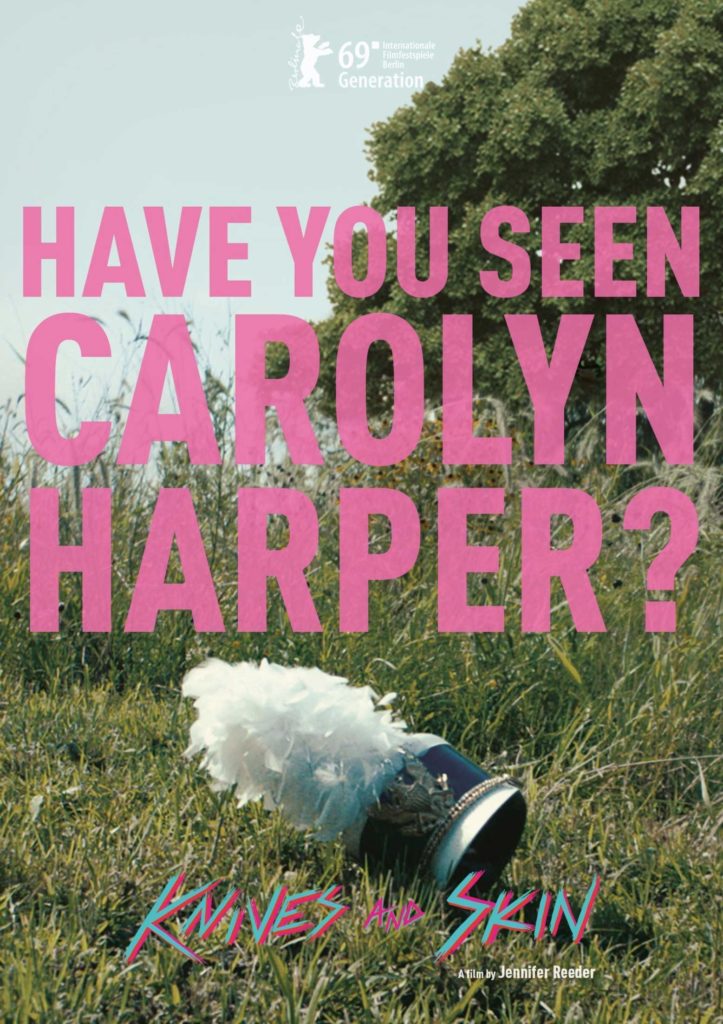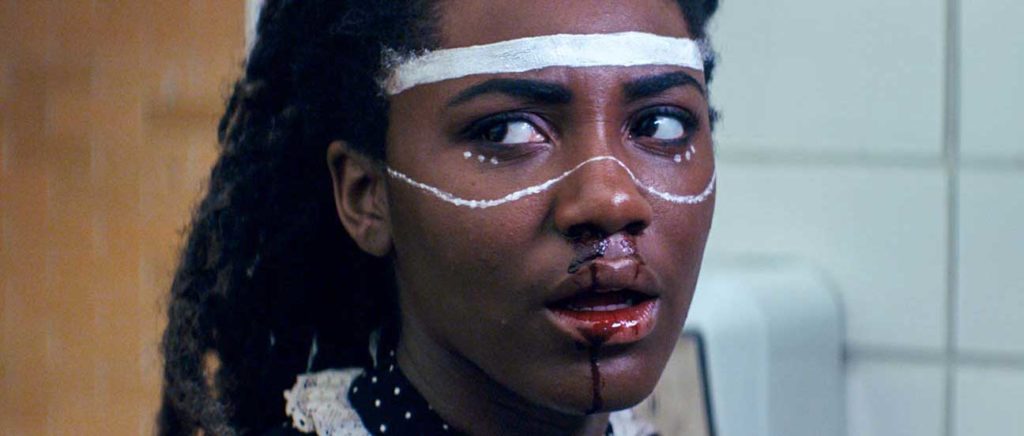
Director: Jennifer Reeder
Writer: Jennifer Reeder
Cast: Grace Smith, Marika Engelhardt, Kate Arrington, Raven Whitely, Audrey Francis, Ty Olwin, Tim Hopper
Cert: 15 (TBC)
Running time: 111mins
Year: 2019

What’s the story: In a small midwestern town, the disappearance of a high school girl plays as the backdrop for the lives and intrigues of the townsfolk.

What’s the verdict: Lyrical, engrossing and infuriating, Jennifer Reeder’s magical realist take on teen angst is sometimes too pointed for comfort, but the end result gets under the skin.
Early on, band majorette Carolyn (Whitely) is seen rebuffing the advances of boorish boyfriend Andy (Olwin) during a nocturnal, lakeside tryst. Abandoned when Andy drives away, Carolyn is subsequently declared missing.
The lives of the other girls in the town high school continue as the search for Carolyn rumbles on in the background. These include Andy’s sister Joanna (Smith), dealing with her unstable mother Lynn (Francis), while selling mum’s underwear and prescription pills to schoolteachers.
With its small-town intrigues (affairs and drug abuse abound), sense of imminent violence and the disappearance of a high-school sweetheart, Knives and Skin dwells in a place very close to Twin Peaks. A feeling doubled-down on with Nick Zinner’s synth score and a strong performance from Marika Engelhardt as Carolyn’s mother, someone as prone to unsettling displays of public grief as Laura Palmer’s parents.

What elevates Reeder’s film above mere homage is a focus on her female characters and their powerplays. Be it Joanna, using her intelligence to compromise male teachers, her friends exploring their sexuality or the sheriff’s wife (Arrington), using her pregnancy as a weapon while having an affair with Joanna’s dad (Hopper).
Even Carolyn has a power, the void she leaves repeatedly breaking characters away from their own obsessions.
In this, Knives and Skin would play well on a triple bill with Sam Levinson’s Assassination Nation and Wes Craven’s My Soul to Take, another film about high school rituals and power structures in a rural midwestern town with missing kids.
As interested in moods and textures as dramatic moments, Reeder colours her film in bursts of pink and red, favouring dissolves between scenes for a weird, dreamlike atmosphere that keeps characters and audiences off-kilter.

Although set in present day, a preponderance of cassette tapes and acapella renditions of 80s songs during Glee club again keeps all this in an odd nowhere-time.
Not everyone will be on board with Reeder’s take on small town life. Riding the razor’s edge of profundity and pretention, the tone does slip (we predict some will bail around the time of a cunnilingus clown).
But, the character vignettes accumulate into an emotional payoff come the closing scenes, and the film lingers in the mind longer than many more immediately agreeable high school flicks.
Rob Daniel
Twitter: rob_a_Daniel
iTunes Podcast: The Electric Shadows Podcast

Pingback: Electric Shadows reflects and rounds-up the 2019 Arrow Video FrightFest